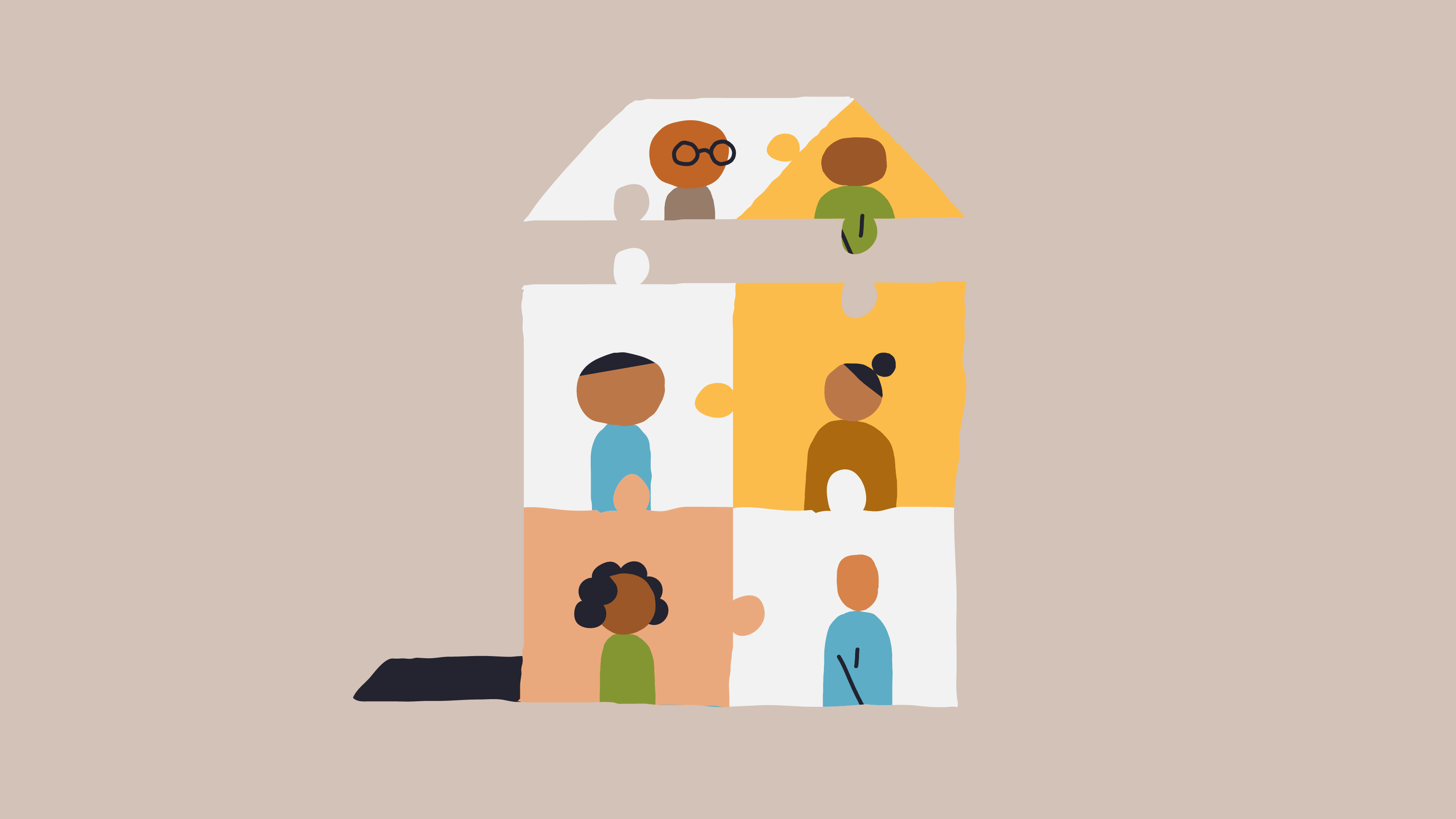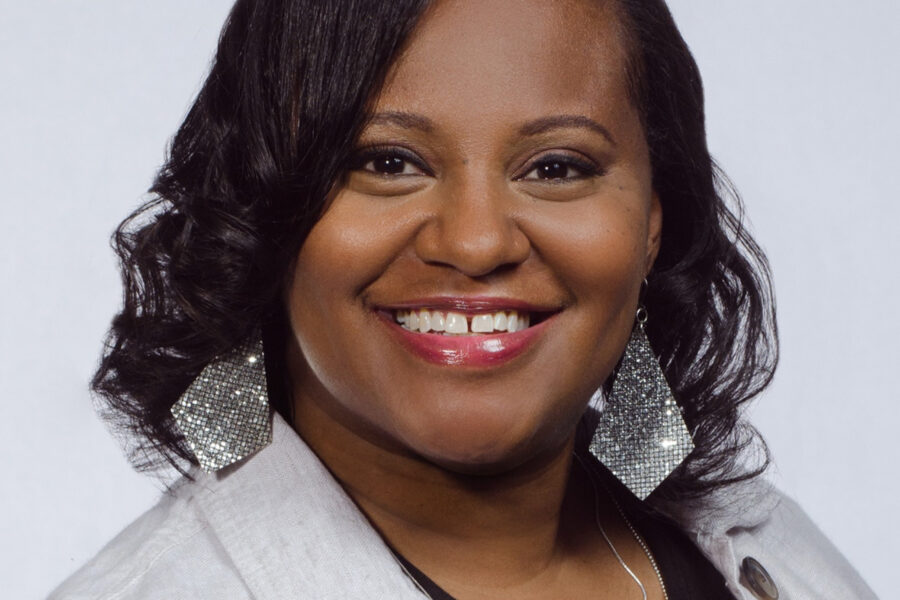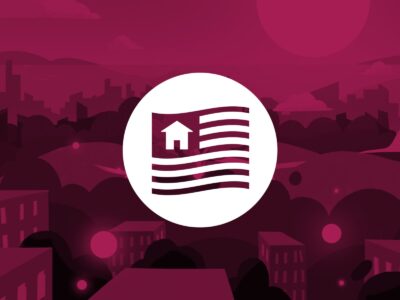We’re honored to have brilliant, dedicated Black leaders working to end homelessness in Built for Zero communities around the country. In this series, we’re recognizing some of the Black leaders in the movement to end homelessness.
Erica Holmes serves as the Director of Flagler Housing and Homeless Services, the lead agency of their local planning group for homeless response in the Crater Region, Virginia, area. She has worked in homeless services for nearly 13 years, but it was her previous work in property management that drove her to focus on keeping people in housing and advocacy around housing policies.
Under the leadership of Holmes, Crater Region reached functional zero for veteran homelessness in February 2021.
Congrats on reaching functional zero! What are you working on now?
Erica Holmes: After meeting our veteran functional zero last spring, we have started focusing on chronic homelessness. We’re working with our community service board and some of our other providers to connect people that are chronically homeless on our by-name list to housing with supports. We are excited that we’re getting our data cleaned up and hopefully in 2023, we’ll be celebrating another [functional zero] milestone with the chronic homeless population.
How is your community working to address fair access within their homeless system?
Around late August, early September, we started talking specifically about race and how our coordinated entry system is ensuring that everyone is able to get access to services.
“Whether you have a college degree and you’re now experiencing homelessness, or you never went to school a day in your life and don’t know how to read or write — you still need to be able to come through the system and get the same respect, go through the same process, and get the same help to get back into stable housing.”
Erica Holmes
Our CACH Board, the Crater Area Coalition on Homelessness board, developed a fair access tool in September, where we track those who are entering the homeless system by not only their race, but also their ethnic group. We found that, of course, most of those that we serve — 84% of our population — is African American and only 12% is white or another race.
So we’re talking to community providers about their intake process and what kind of questions are being asked and ensuring that we’re getting all of the data. This was just based on some of our outreach programs, our rapid rehousing program, as well as our non-congregate shelter.
We’re still in our early stages, but this is on the top of our priority list and we want to make sure that we are not setting up barriers for people to access services. In ensuring that the community knows who we are, where we are, and where they can get assistance.
Why is coordinated entry important in homeless response?
Coordinated entry is a process for those in the community to access homeless services. We take a ‘no wrong door’ approach. We educate our community partners that if someone comes through your agency, whether it’s our community service board or our Salvation Army, you don’t necessarily have to be a homeless service provider with money to fund this, but if they come through your door we have a system in place where they are assessed… this ensures that they are provided available community resources. They then receive a followup from an access point to help them connect to a housing resource. The housing resource could be anything from rapid rehousing, which is a short-term rental assistance, to housing with supports which consists of long- term rental subsidy.
Our current partnership with the local housing authorities, allows us to refer to an actual Section 8 program or a long term voucher. Additionally, we do a lot of self-resolution, which is having a conversation to problem solve and help those who are coming through the system look at what their natural resources are. Through our coordinated entry process we are having those conversations at the front door which helps them to just think through their own community, family and extended family resources.
When those things are not available, we share what we have to offer and make them aware of the services we have within our continuum and our locality to serve them and get them and their family back into housing.
Read the case study on Crater Region, Virginia here.
Why is coordinated entry important to fair access in homeless systems?
It is important that all communities are looking at their coordinated entry process, because systematically, resources have always naturally been accessible to those that are not Black and brown.
Whether you need to change your language so that it is easy to understand, how this works and not make things so convoluted or not make things where people have to jump through multiple hoops to be able to access services… …It is important because that’s where you see those that are white are able to understand the system, get through the system, and get those services that they need.
Then we have our Black and brown community that are like, ‘okay, I called you and you gave me this number, but what you said, I don’t even understand. I don’t even know what to do next.’ So then they’re lost in the system and they’re losing that trust factor.
It is like you’re screening people out instead of ensuring that we screen them in. We want to screen them in as quickly as possible, using trauma-informed care, making this easy for those in need.
A big part of all of our COCs and local planning groups is looking at your coordinated entry process. Ensuring an equal and fair playing field so that anyone — whether you have a college degree and you’re now experiencing homelessness, or you never went to school a day in your life and don’t know how to read or write — you still need to be able to come through the system and get the same respect, go through the same process, and get the same help to get back into stable housing.





